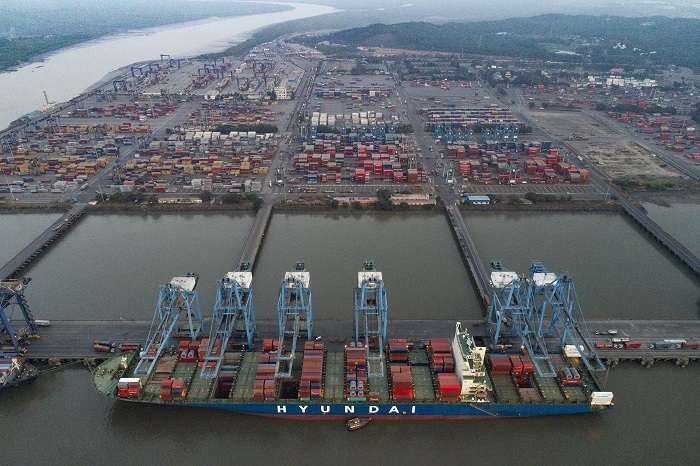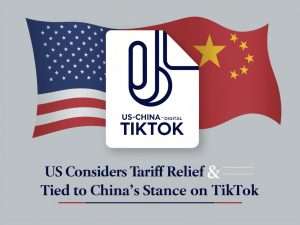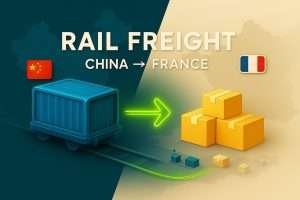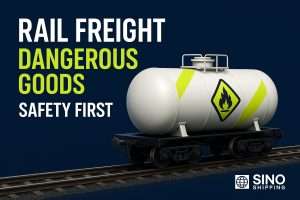If you’re looking to import goods from China to India, Nhava Sheva is your ultimate destination. As India’s largest and busiest container port, it’s a critical hub for businesses aiming to streamline their logistics and reduce costs. This guide dives into costs, transit times, shipping options, and strategies to optimize your shipping process.
Why Nhava Sheva is a Strategic Port for Imports
Nhava Sheva (Jawaharlal Nehru Port) handles 50% of India’s containerized cargo traffic, making it the preferred choice for importers. Here’s why:
- Prime location: Close to Mumbai, Nhava Sheva connects easily to India’s major markets.
- Efficient infrastructure: Advanced cargo handling and storage facilities minimize delays.
- Cost advantages: Competitive port charges reduce your overall shipping expenses.
Whether you’re shipping consumer goods, machinery, or raw materials, choosing Nhava Sheva offers a balance of cost and efficiency.
Shipping Methods: Sea Freight vs. Air Freight
When shipping from China to Nhava Sheva, you’ll need to choose between sea freight and air freight. Your decision will depend on factors like cost, urgency, and shipment size.
1. Sea Freight
Sea freight is the go-to option for most businesses because of its cost-effectiveness and capacity for large shipments.
| Mode | Transit Time | Cost Range |
|---|---|---|
| FCL (Full Container Load) | 15–25 days | $1,200–$1,800 for 20GP |
| LCL (Less than Container Load) | 18–30 days | $100–$200 per cubic meter |
- FCL is ideal for bulk shipments that fill an entire container.
- LCL lets you share container space, making it a great option for smaller shipments.
2. Air Freight
If speed is your top priority, air freight is the way to go. While more expensive, it ensures faster transit times, making it suitable for high-value or time-sensitive goods.
| Mode | Transit Time | Cost |
|---|---|---|
| Air Freight | 3–7 days | $6–$12 per kilogram |
Air freight is often used for electronics, fashion items, and other products that require rapid delivery.
Understanding Shipping Costs from China to Nhava Sheva
Shipping costs can vary widely depending on several factors. Here’s a breakdown of what impacts your expenses:
- Shipment size and weight: Larger or heavier shipments cost more.
- Shipping mode: Sea freight is cheaper per unit but slower, while air freight is faster and pricier.
- Peak seasons: Expect higher costs during Chinese New Year and other high-demand periods.
- Customs duties and taxes: These add to the final cost, so proper planning is essential.
Example: Shipping Cost Scenarios
| Scenario | Estimated Cost |
|---|---|
| 1 x 20GP container (sea freight) | $1,500 |
| 1,000 kg electronics (air freight) | $7,000–$10,000 |
Typical Transit Times from China to Nhava Sheva
Transit times depend on the mode of transport and the departure port in China. Here’s what you can expect:
- Sea Freight: 15–30 days depending on the route. Major ports like Shanghai, Ningbo, and Guangzhou offer weekly departures to Nhava Sheva.
- Air Freight: 3–7 days for direct flights.
Key Tip: Factor in port congestion at both the origin and destination to avoid unexpected delays
Customs Clearance at Nhava Sheva: What You Need to Know
Customs clearance is a critical step in the shipping process. To ensure smooth clearance at Nhava Sheva, prepare the following documents:
- Bill of Lading (B/L): Proof of shipment.
- Commercial Invoice: Details of the goods and their value.
- Packing List: Comprehensive description of the shipment’s contents.
- Import Export Code (IEC): A mandatory registration for importers in India.
- HS Code: Ensure accurate classification of goods to avoid penalties.
Pro Tip: Partnering with a reliable freight forwarder can help navigate customs efficiently and prevent costly delays.
How to Choose the Right Freight Forwarder
Working with a freight forwarder simplifies the logistics process and ensures hassle-free shipping. Here’s what to look for:
- Experience: Choose a company with expertise in China-India shipping.
- Network: Ensure they have strong connections at both origin and destination ports.
- Services: Look for end-to-end solutions, including customs clearance and cargo insurance.
Common Challenges When Shipping from China to Nhava Sheva
Shipping internationally is complex, and there are several challenges you should be prepared for. Here’s a list of the most common issues and how to address them:
1. Port Congestion
Nhava Sheva is a busy port, and delays due to congestion are not uncommon. This can extend your transit times and increase storage fees.
- Solution: Work with a freight forwarder to schedule shipments during off-peak times or use alternate Indian ports when possible.
2. Customs Delays
Improper documentation or misclassification of goods can lead to extended customs clearance times.
- Solution: Double-check your documents, particularly the HS codes, and consult with your freight forwarder to ensure compliance with Indian customs regulations.
3. Seasonal Price Surges
Shipping costs can spike during peak seasons, such as Chinese New Year or India’s festival season.
- Solution: Plan shipments in advance to avoid peak periods and lock in rates with your shipping provider.
4. Damaged or Lost Goods
While rare, damaged or lost cargo can be a risk, especially for sea freight.
- Solution: Invest in cargo insurance to protect your shipment. Ensure proper packaging to withstand handling and transit conditions.
Tips to Optimize Your Shipping from China to Nhava Sheva
Efficient shipping is all about planning and strategy. Here are some actionable tips to help you save time and money:
- Choose the right Incoterms: Decide who is responsible for each leg of the shipment. For instance, FOB (Free on Board) places more responsibility on the buyer, while CIF (Cost, Insurance, Freight) shifts the burden to the seller.
- Consolidate shipments: If you have multiple small orders, consolidate them into one shipment to reduce LCL costs.
- Track your shipments: Use real-time tracking tools to monitor your cargo and anticipate potential delays.
- Build relationships with your forwarder: A strong partnership with a reliable freight forwarder can simplify your logistics significantly.
The Role of Incoterms in Your Shipping Strategy
Incoterms play a crucial role in defining responsibilities between the buyer and seller during shipping. Here’s a quick overview of the most common incoterms used for shipments to Nhava Sheva:
| Incoterm | Responsibility |
|---|---|
| FOB | Seller delivers goods to the port in China; buyer handles shipping and insurance. |
| CIF | Seller manages shipping and insurance; buyer handles customs clearance in India. |
| DAP | Seller takes care of everything except customs clearance in the destination. |
Pro Tip: For shipments to Nhava Sheva, FOB is often the most cost-effective option, giving you control over freight and insurance.
Should You Invest in Shipping Insurance?
The journey from China to Nhava Sheva involves multiple handling points, increasing the risk of damage or loss. Shipping insurance can safeguard your investment. Here’s what you need to know:
- Types of insurance:
- All-risk coverage: Protects against any potential loss or damage.
- Free of particular average (FPA): Covers major losses like total container damage.
- When to get insurance: High-value or fragile goods should always be insured.
FAQs About Shipping from China to Nhava Sheva
What’s the cheapest way to ship goods from China to Nhava Sheva?
The most affordable method is sea freight, particularly Less than Container Load (LCL) shipping for smaller quantities. For larger shipments, Full Container Load (FCL) offers better value. While air freight is faster, it is much more expensive, making it unsuitable for non-urgent shipments. Consolidating smaller orders into one shipment is another effective way to reduce per-unit shipping costs.
How long does shipping take from China to Nhava Sheva?
Transit times vary depending on the shipping method. Sea freight typically takes 15 to 30 days, depending on the port of origin and specific route. Major ports like Shanghai or Ningbo usually have a transit time of 20 to 25 days, while shipments from Shenzhen or Guangzhou can arrive in 15 to 20 days. Air freight, by comparison, is much faster, with transit times of 3 to 7 days for direct routes. However, factors like port congestion, customs delays, or bad weather can affect these estimates.
What documents do I need for customs clearance in India?
Customs clearance at Nhava Sheva requires several key documents. The Bill of Lading (B/L) serves as proof of shipment, while the Commercial Invoice provides details of the goods and their value. A Packing List is essential to describe the contents of your shipment. Importers must also have an Import Export Code (IEC), a mandatory registration for all businesses importing goods into India. Finally, accurate classification of goods using the Harmonized System (HS) code is crucial to avoid penalties or miscalculations of customs duties.
Are there any taxes or duties when importing to Nhava Sheva?
Yes, importing goods into India involves multiple taxes and duties. Customs duties are calculated based on the HS code and product value, and these vary across product categories. Additionally, the Integrated Goods and Services Tax (IGST) applies to the import value, which includes customs duties. Certain goods may also attract an additional cess, especially luxury or high-value items like electronics. Proper classification and accurate valuation are critical to estimate these costs accurately.
How do I reduce shipping costs from China to Nhava Sheva?
To minimize shipping costs, plan your shipments during off-peak times, avoiding high-demand periods like Chinese New Year. Using LCL shipping for smaller loads or consolidating multiple shipments can also help reduce costs. Efficient packaging to optimize space and reduce volumetric weight is another effective strategy. Negotiating rates with freight forwarders or choosing longer but more economical routes are additional options to consider.
Do I need shipping insurance for my cargo?
While not mandatory, shipping insurance is highly recommended, especially for high-value or fragile goods. It protects your shipment from potential risks such as damage, theft, or loss during transit. Two common types of insurance are All-Risk Coverage, which provides comprehensive protection, and Free of Particular Average (FPA), which covers major incidents like total loss or severe damage. Insurance costs are relatively low compared to the potential financial loss of an uninsured shipment.
Which incoterms are best for shipping from China to Nhava Sheva?
The choice of incoterms depends on your level of control and responsibility in the shipping process. FOB (Free on Board) is a popular choice, where the seller handles the goods until they are loaded onto the ship, and the buyer takes responsibility from there. CIF (Cost, Insurance, and Freight) simplifies the process for the buyer, as the seller manages shipping and insurance until the destination port. DAP (Delivered at Place) goes even further, covering all costs except customs clearance at the destination. FOB is often the most cost-effective for experienced importers, while CIF or DAP may suit those looking for convenience.
What are the main departure ports in China for Nhava Sheva?
China’s major ports for shipments to Nhava Sheva include Shanghai, Ningbo, Shenzhen, Guangzhou, and Qingdao. Shanghai and Ningbo are key ports in eastern China, with frequent services to India. Shenzhen and Guangzhou are ideal for shipments originating from southern China, offering faster transit times. Qingdao serves northern China and is commonly used for bulk commodities and machinery exports. Choosing a port close to your supplier reduces inland transportation costs and simplifies the logistics process.
How do I track my shipment to Nhava Sheva?
Most freight forwarders and shipping lines offer real-time tracking tools. You can use the Bill of Lading number or a tracking ID provided by the carrier to monitor your shipment’s progress. Major carriers like Maersk or COSCO have dedicated online platforms for tracking, while some freight forwarders integrate tracking across multiple carriers. Real-time tracking allows you to anticipate delays and make necessary adjustments to your logistics plan.
What’s the role of a freight forwarder in the shipping process?
A freight forwarder simplifies the complexities of international shipping by managing transportation, documentation, and customs clearance on your behalf. They handle the logistics of moving goods from the supplier in China to the port at Nhava Sheva, ensuring compliance with local regulations. Freight forwarders also negotiate rates with carriers, arrange cargo insurance, and provide tracking updates, giving you peace of mind throughout the shipping journey.












